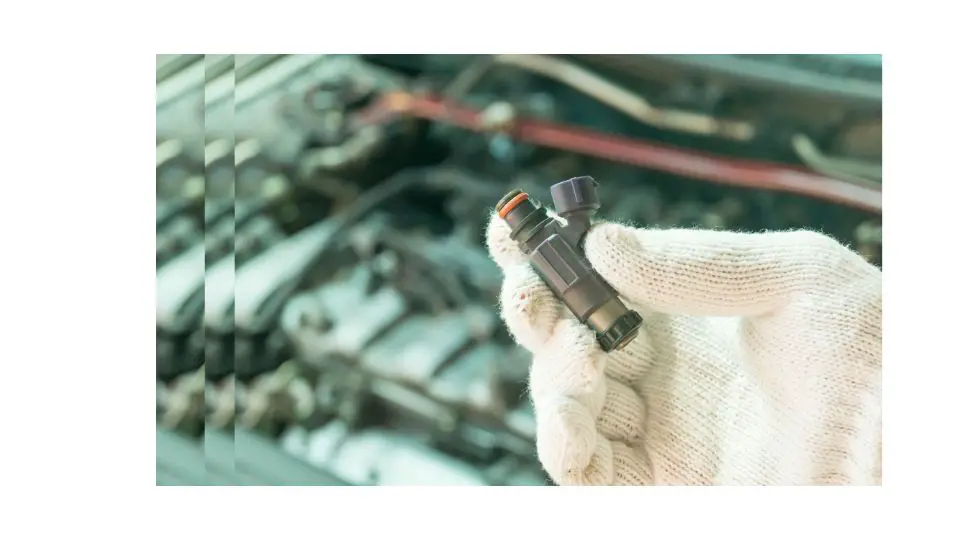There are various clogged fuel injector symptoms that can indicate that your car’s engine is not running smoothly. If you experience any of these symptoms (listed below), it’s important to take action to fix the issue as soon as possible.
What are Fuel Injectors?
Fuel injectors are one of the most important parts of your vehicle’s engine. They are responsible for injecting fuel into the engine at a precise time, ensuring that all cylinders get an equal amount of fuel and air to improve performance and efficiency.
Fuel injectors come in different shapes and sizes depending on your vehicle’s make and model, but they all serve the same purpose. Fuel injectors are usually located near or under the intake manifold in the engine compartment, but some may be located inside the engine block near cylinder heads (such as on diesel engines).
The function of a fuel injection system is to measure out precisely how much fuel should go into each cylinder at any given time.
This is done by using a variety of sensors and control units to measure things like intake air temperature, throttle position, engine load, engine RPM, exhaust gas temperature and many other factors that affect how much fuel should be injected at each point in time.
Clogged fuel injector symptoms
If you’re experiencing any of these symptoms, it’s time to get your fuel injectors cleaned.
Jerky Idling
When the fuel injectors are clogged, the engine will have a hard time accelerating and idling properly. This can cause jerky movement and make it difficult to accelerate from a stop or when driving slowly. In addition, if your car is idling unevenly, this could be another sign that your fuel injectors are clogged.
RPM Needle going up and down
When your car’s RPM needle goes up and down while you’re driving, it’s usually due to a bad spark plug or faulty coil wire. However, if the RPM needle keeps going up and down even after replacing the spark plugs or coil wires, then it could be a sign that your fuel injectors are clogged or defective.
Engine misfire
A misfire occurs when one of the cylinders doesn’t receive enough fuel to ignite properly — this causes incomplete combustion and can lead to serious engine damage if left untreated for long periods of time. If your car is experiencing an engine misfire that doesn’t go away after replacing all the necessary parts (such as ignition coils), then it’s probably
Performance issues
If your car is having trouble accelerating or feels like it has lost power, your fuel injectors could be the culprit. This could also be a sign of a leaking vacuum line or bad spark plugs.
Bad gas mileage
If your car isn’t getting as good gas mileage as it used to or you’re getting worse gas mileage than other drivers in your area, this could be due to a clogged fuel injector.
Can You Drive with Clogged Fuel Injectors?
Yes, you can still drive your car with a clogged fuel injector. However, the car will run worse and may even stall. If the injector is clogged in the fuel rail, the fuel won’t flow into the engine properly.
This can cause a host of problems, including poor fuel economy, decreased performance, and even engine failure. In some cases, the injector can even catch on fire. So, if you’re experiencing any of these problems, it’s important to get the injector replaced as soon as possible.
How do you unclog a fuel injector?
There are two ways to unclog a fuel injector:
- Remove the injectors and take them to a professional (best way). This is the preferred method because it ensures that all of the gunk is removed from the nozzle tips, which can sometimes be difficult to reach with cleaning tools at home. Professionals also have access to special cleaners that will ensure they don’t get damaged when they’re put back together
- Use an injector cleaner spray or solution (good option). There are several products available in auto parts stores that will clean out your fuel system and restore function to your engine. Look for brands like Sea Foam or BG44K

Robert Anderson is a world class motorhead who rebuilt his first carb at age 10, his first engine at age 15, and completed his first full hotrod build when he was just 18! Previously, he has ran a part warehouse, delivered pizzas, and managed the service department for a $20 million/year revenue dealership. Robert knows cars like few others and he is passionate about sharing his knowledge.

